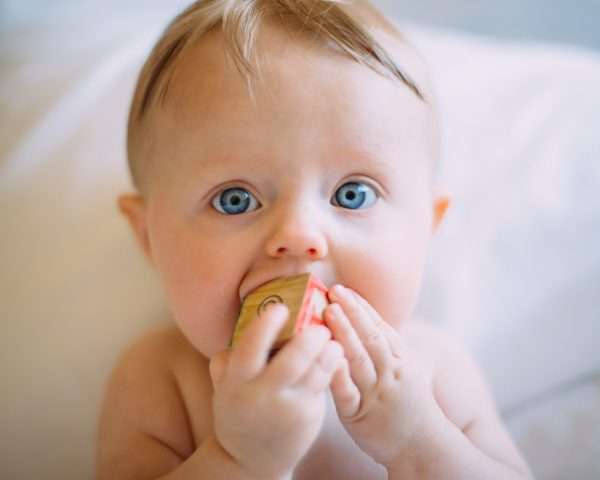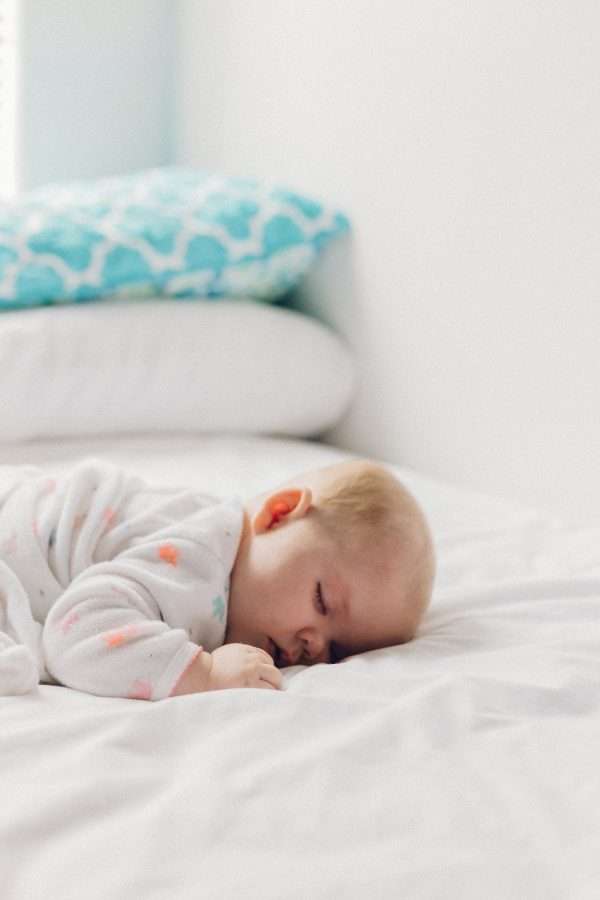Raising a newborn can be one of the most challenging things you’ll ever do in your life. It takes an immense amount of work, and you’ll likely be exhausted from all you have to do. Plus, there’s no shortage of surprises especially when it comes to their health. Here are 8 things about newborn babies that might surprise you but that shouldn’t worry you.

Cross-eyed babies are actually very common
If you notice that your child is slightly cross-eyed then it may have you worried about the future of their vision. Fortunately, this is normal. Newborn babies will likely be cross-eyed or appear to be because they’re slowly getting accustomed to using their eyes. This is a natural part of their development, and it’s nothing to be concerned about. This will typically resolve at around the two to three-month mark, but as with many things involving newborns, this period of time can vary greatly.
Around the four-month mark, babies will be able to follow objects with both eyes thanks to the hand-eye coordination they’ve slowly developed. However, if you notice that your baby’s eyes aren’t tracking or correcting, then there’s nothing wrong with consulting your doctor for extra peace of mind.

Newborns are very light sleepers
Babies are very light sleepers, and you shouldn’t be alarmed when you hear them making strange noises at night. Irregular breathing is also relatively common because they’re still growing accustomed to their bodies, and it shouldn’t alarm you. In fact, a newborn’s breathing rate may seem erratic which will scare many parents, and this may cause them to contact their doctor. However, there’s nothing to be alarmed about, and it’s a phase which will pass within a few months when they finally have their breathing under control.
If you are concerned about your child’s breathing or if they seem to be exhibiting symptoms which worry you, then seeking help from a doctor is a good idea. It’s likely nothing serious, but it’s never a bad idea to be extra safe.
Swollen breast tissue is an effect of the mother’s hormones
Another thing about newborn babies that might surprise you is swollen breast tissue. Some parents believe that slightly swollen breast tissues after birth are actually the sign of an early developer or even a hormonal issue especially if the newborn is male. However, this is actually an effect of the mother’s hormones in the newborn since this is only an issue which happens shortly after birth. In fact, some parents may even notice that their child secretes a little milk, but this is actually fairly common, and you can expect the swelling to go down within a few weeks or months. The condition even has its own name: witch’s milk.
However, if the swelling does not go down then you may want to speak to your doctor about it. Although there’s a very small likelihood that the issue is serious, it’s better to be safe than sorry.
Your baby isn’t unhappy, they just aren’t old enough!
There are many ways to make a baby smile. From crawling along the floor with them to feeding them their favorite snack, you’ll have your newborn giggling and smiling in no time when you start to play with them on a more frequent basis. However, newborns rarely ever coo or smile until they hit around the 5 to 7-week mark. Babies actually only start to smile when their vision improves and they’re able to make out your face. In addition, they’ll start to express more emotions in reaction to certain things, such as smiling when you’re feeding or playing with them.
However, the one exception to this is that you should be a little concerned if 3 months have passed and you’ve yet to see your child smile. You should mention this to your pediatrician when you next see them, but no sign of a smile around this time isn’t a sign that your newborn is unhappy or that something is wrong. The milestone for your baby’s first smile can be vastly different from another newborn, so don’t to too alarmed.
Peeling skin is actually very normal
Peeling skin may have parents worried, and even though it’s something about your newborn baby that might surprise you, it’s actually a very common thing to see especially during the first year of a baby’s development. Your baby just spent nine months surrounded by protective liquids, so being exposed to air is a new sensation which they need to adapt to. In fact, newborns can lose their outer layer of skin in as little as two to three weeks after birth. So is it normal for a newborn to have peeling skin? Yes, it is! Don’t worry too much about the unsightly peeling skin, and remember that it’s perfectly normal. It heals very quickly and usually isn’t a cause for concern.
There are a couple of things you can do to help the healing process. First, making baths shorter is a great way to ensure that their skin doesn’t dry out. Anything above 10 minutes is too much for a baby, and you should limit it to around half the time. Lukewarm water will also prevent your baby’s skin from drying out, but it won’t be cool enough for them to start shivering. Baby oil is also very important for helping lock in moisture and deal with dry patches of skin around your newborn’s skin.
Spots on your baby’s face are harmless
If you notice small white spots on your newborn’s face then they’re likely milk spots. Also known as milia, they’re essentially small white bumps that can appear on their nose, chin or cheeks. They’re usually caused by skin flakes that are trapped in the surface of the skin and are common in newborns but can actually appear in adults as well. There’s no method of prevention, and treatment isn’t needed. They can look a little unsightly, but they’re not a cause for concern.
However, if the spots do not clear up within three months, then you can consult your doctor for advice.
Don’t worry, your baby isn’t going bald!
Newborns actually lose hair on a regular basis, and it’s completely normal to see a clump of hair in their crib. Hair has two stages; a growth one and a rest one. During the growth stage, you can expect the hairs on your baby’s head to gradually grow longer, but then after about three years, their hair will start to enter a rest period which means they will stop growing until new hair starts to appear. Hormonal changes can also affect the way your baby’s hair is growing, so this is nothing to be worried about.
Some parents even find that their child can grow a completely different head of hair than what they were born with. In fact, both the color and texture could be completely different! However, one thing to look out for is bald spots on their head that are red, flaking or even dry. This could indicate that they are rubbing that certain part of their head on their bed sheets a little too much, and they could be sensitive to the bedding material that you’ve chosen. If you notice bald, dry and flaking spots on your child’s head, then you may need to speak to your doctor.
Blue hands and feet don’t mean your child is cold
Due to the poor circulation of your newborn’s developing body, it’s actually common for their hands or feet to appear cold or blue. This doesn’t necessarily mean that they’re cold, just that their circulation hasn’t yet fully developed. As long as their lips and tongue are a warm pink, there’s nothing you need to worry, about and you can safely ignore this problem. However, it’s never a bad idea to provide a little warmth for their hands and feet. You should dress your baby in warm layers.
However, if their lips are tinted blue or even purple, then it’s a cause for concern because it could mean they’re not getting enough oxygen. If this is the case, then you should seek medical advice immediately.

Leave a Reply